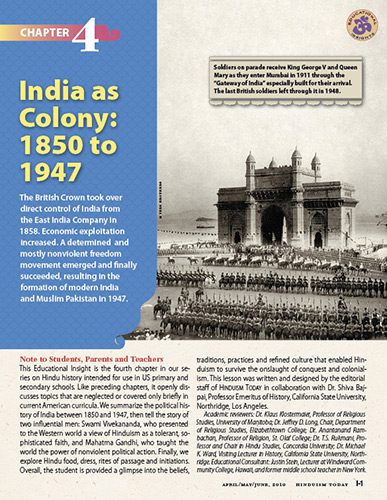
Hindu History, Chapter Four
India as Colony: 1850 to 1947
This Educational Insight is the fourth chapter in our series on Hindu history intended for use in US primary and secondary schools. Like preceding chapters, it openly discusses topics that are neglected or covered only briefly in current American curricula. We summarize the political history of India between 1850 and 1947, then tell the story of two influential men: Swami Vivekananda, who presented to the Western world a view of Hinduism as a tolerant, sophisticated faith, and Mahatma Gandhi, who taught the world the power of nonviolent political action. Finally, we explore Hindu food, dress, rites of passage and initiations. Overall, the student is provided a glimpse into the beliefs, traditions, practices and refined culture that enabled Hinduism to survive the onslaught of conquest and colonialism. This lesson was written and designed by the editorial staff of HINDUISM TODAY in collaboration with Dr. Shiva Bajpai, Professor Emeritus of History, California State University, Northridge, Los Angeles.
 Hinduism’s Nine Beliefs
Hinduism’s Nine Beliefs 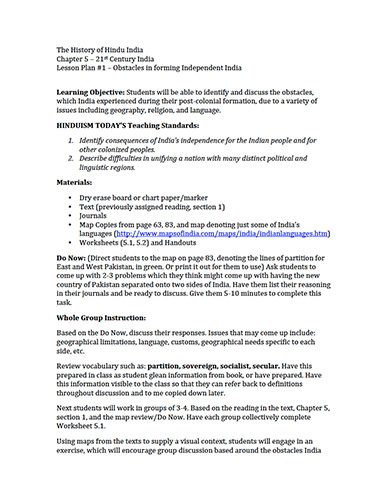 Hindy History, Chapter Five, Lesson Plans
Hindy History, Chapter Five, Lesson Plans  Hindu History, Chapter Four, Lesson Plans
Hindu History, Chapter Four, Lesson Plans 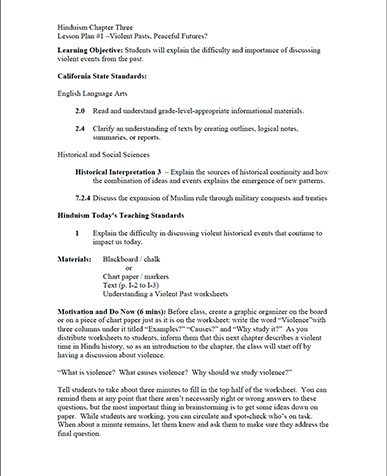 Hindu History, Chapter Three, Lesson Plans
Hindu History, Chapter Three, Lesson Plans 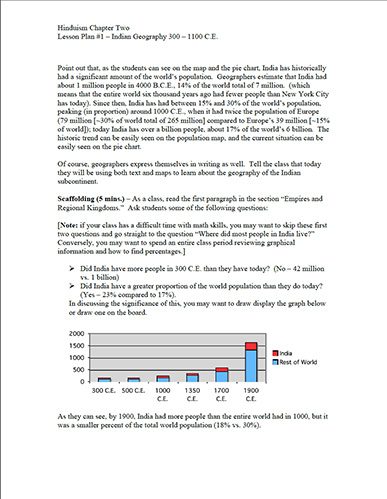 Hindu History, Chapter Two, Lesson Plans
Hindu History, Chapter Two, Lesson Plans  Hindu History, Chapter One, Lesson Plans
Hindu History, Chapter One, Lesson Plans  Hindy History, Chapter Five
Hindy History, Chapter Five  Hindu History, Chapter Three
Hindu History, Chapter Three 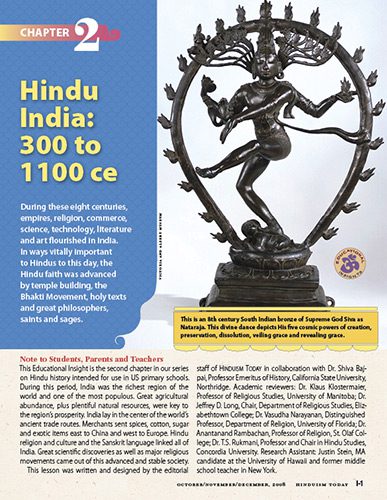 Hindu History, Chapter Two
Hindu History, Chapter Two  Hindu History, Chapter One
Hindu History, Chapter One